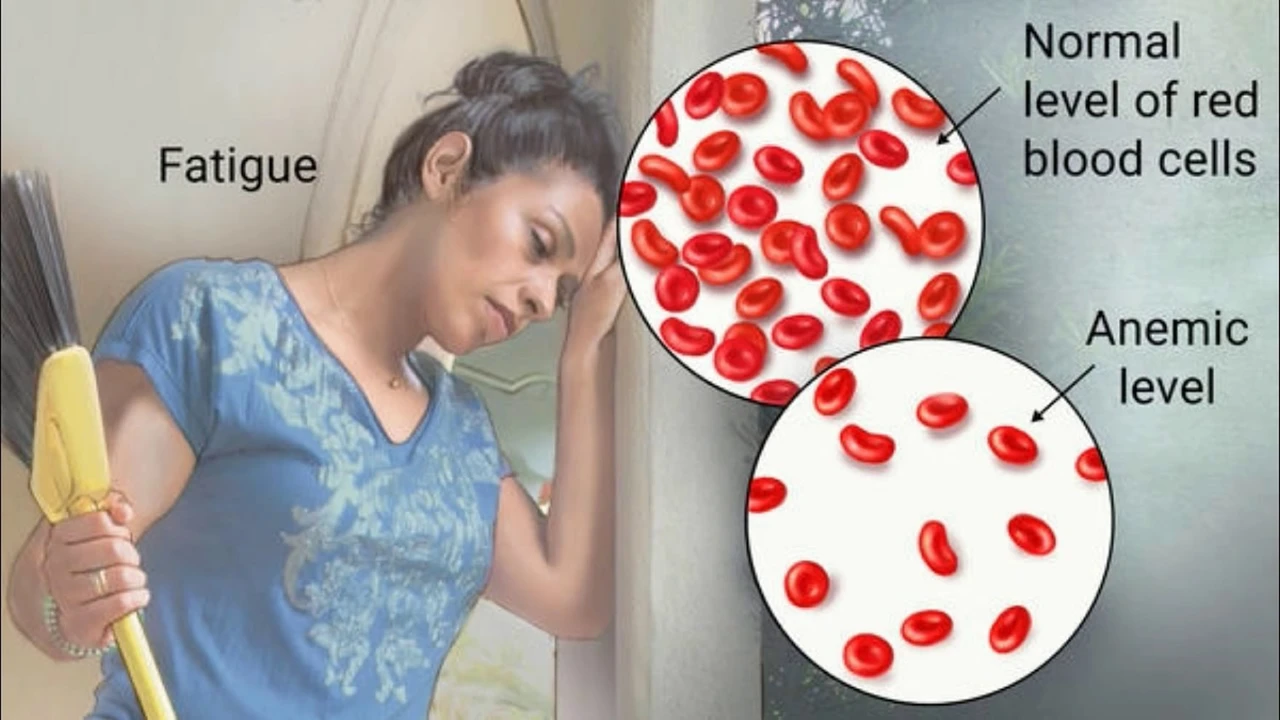When you’re past 65, feeling tired all the time isn’t just ‘getting old.’ It could be anemia, a condition where you don’t have enough healthy red blood cells to carry oxygen. The good news is that most cases are treatable, and catching it early can keep you feeling active and independent.
Older bodies change in ways that make anemia more likely. First, the gut doesn’t absorb iron, B12, or folate as efficiently, so nutrient gaps show up faster. Second, chronic diseases like kidney disease, heart failure, or cancer can interfere with red‑cell production. Blood loss is another culprit – even a small, unnoticed gastrointestinal bleed can add up over months. Medications matter too; aspirin, steroids, and some blood‑pressure drugs can thin the blood or affect the marrow.
Because seniors often have more than one of these risk factors, it’s not unusual to see mild anemia show up on a routine blood test. The key is to look at the numbers – hemoglobin under 13 g/dL for men and under 12 g/dL for women usually flags a problem – and then figure out why.
The first step is to pinpoint the cause. Your doctor may order iron studies, B12 levels, a folate test, or a colonoscopy if they suspect hidden bleeding. Once they know the type, treatment gets specific.
Iron‑deficiency anemia is the most common. Boost iron with foods like lean red meat, beans, spinach, and fortified cereals. Pair iron‑rich meals with vitamin C (orange juice, bell peppers) to improve absorption. If diet alone isn’t enough, a doctor‑prescribed iron supplement taken on an empty stomach works well, but watch for stomach upset.
Vitamin B12 deficiency often stems from low stomach acid or poor absorption. Include fortified cereals, dairy, and eggs. Many seniors need a B12 shot or a high‑dose oral supplement because the gut can’t pull the vitamin in effectively.
Folate deficiency is less common but can happen with certain medications. Leafy greens, legumes, and citrus fruits supply folate. A simple folic‑acid pill can correct low levels quickly.
When anemia is tied to chronic disease, treating the underlying condition is the priority. For kidney‑related anemia, synthetic erythropoietin injections help the body make more red cells. In more severe cases, a short course of blood transfusion might be needed to get you back on your feet.
Beyond medical fixes, lifestyle tweaks make a big difference. Stay active with light walking or chair exercises to boost circulation and stamina. Keep hydrated – dehydration can make hemoglobin readings look worse than they are. And schedule regular blood work, especially after any new medication or health change.
Remember, anemia isn’t a one‑size‑fits‑all issue. Talk to your healthcare provider about the exact type you have, follow the recommended supplement plan, and keep an eye on your diet. With the right steps, you can beat the fatigue and keep enjoying life’s everyday moments.

I'm absolutely amazed, and not in a good way, by how anemia can impact our elders. It's not just about feeling tired or having low energy, this medical condition has several risks and symptoms that we need to be aware of. As we dive into this topic, we're going to reveal just how anemia can affect the elderly, and most importantly, the strategies we can employ to manage it. So, if you're caring for an aged loved one or know someone who does, join me as we explore this topic because knowledge is power, especially in dealing with health-related issues.
Read More